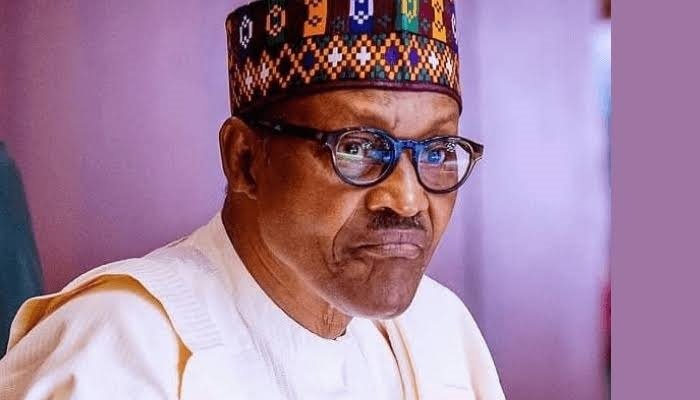FORMER Nigerian President Muhammadu Buhari has died at the age of 82, his former media aide, Garba Shehu, said on Sunday, July 13.
Buhari, who served as Nigeria’s military Head of State from December 1983 to August 1985 and as a two-term civilian president from May 2015 to May 2023, died in a London hospital, where he had been receiving medical care.
The nature of the illness leading to his death is still sketchy as of press time, but the president had reportedly travelled to London since April for what was described as a routine medical check-up.
The ICIR recalls that throughout his presidency, Buhari frequently travelled to London for medical treatment, a pattern that attracted widespread criticism and reignited conversations about the state of Nigeria’s healthcare system.
Particularly, during his first time as civilian leader, from 2016 to 2018, Buhari spent extended periods in London for undisclosed medical treatment, fuelling speculation about his health and capacity to govern.
The government’s reluctance to disclose details about his condition drew backlash, especially as the nation’s public health sector continued to deteriorate.
Before Buhari returned to Nigeria on August 19, 2017, following nearly three months of medical treatment in the United Kingdom, the leader of the Indigenous People of Biafra (IPOB), Nnamdi Kanu, alleged that the president had been replaced by a clone named Jibrin from Sudan.
To confirm how worse Buhari’s health was while he ruled the country as president, just a few days ago, Garba Shehu revealed in his new book, “According to the President: Lessons from a Presidential Spokesperson’s Experience,” that the story about rats invading the Presidential Villa was fabricated as a distraction from Buhari’s health issues and the allegations by the IPOB.
The book, launched on Tuesday, July 8, in Abuja, highlighted how he brought the idea of the Villa rat invasion story to divert public attention away from concerns about Buhari’s health and capacity to govern.
In his valedictory speech on May 28, 2023, Buhari said he “cannot and will not forget the millions who prayed for me during my illness in my first term of office.”
Born on December 17, 1942, in Daura, Katsina State, Buhari’s public life spanned more than six decades. He joined the Nigerian Army at the age of 19, in 1962, and trained at several international military institutions, including the Mons Officer Cadet School in the United Kingdom and the United States Army War College.
At just 20 years old, he was commissioned as a second lieutenant in January 1963 and took up his first post as a Platoon Commander with the Second Infantry Battalion in Abeokuta.
Later that year, he enrolled in the Platoon Commanders’ Course at the Nigerian Military Training College in Kaduna, completing it in early 1964.
He went on to attend the Army Mechanical Transport School, where he trained as a Mechanical Transport Officer.
Between 1965 and 1967, Buhari served as the commander of the Second Infantry Battalion before being appointed brigade major of the Second Sector under the First Infantry Division, a position he held from April to July 1967.
In the wake of the 1966 coup d’état that led to the assassination of Northern Premier Ahmadu Bello, Buhari joined other Northern officers in orchestrating the July 1966 counter-coup, which resulted in the removal of General Aguiyi Ironsi and the installation of General Yakubu Gowon as Head of State.
Buhari first ruled Nigeria as a military leader after taking power in a coup that ousted the civilian government of Shehu Shagari on December 31, 1983.
His regime, though short-lived, was defined by a rigid anti-corruption stance and the controversial “War Against Indiscipline,” a campaign that sought to instil public order through military-style enforcement.
While some Nigerians viewed his approach as necessary in a time of economic decline and widespread graft, others criticised the period for human rights violations and suppression of press freedom.
He was eventually overthrown by his Chief of Army Staff, General Ibrahim Babangida, in August 1985.
Several years later, Buhari reemerged in Nigeria’s democratic space, contesting the presidency in 2003, 2007, and 2011. He lost in those periods under the All Nigeria Peoples Party (NNPP)
However, he finally secured victory in 2015 under the newly formed All Progressives Congress (APC), defeating incumbent Goodluck Jonathan.
His election marked a historic moment in Nigeria’s democratic journey, the first time a sitting president lost a general election and peacefully handed over power.
He was nominated as the APC’s flagbearer by a coalition of opposition figures, including President Bola Tinubu, former Senate President Bukola Saraki, Nasir El-Rufai, among others, to contest against Jonathan, who had seemingly fallen out with several key political stakeholders in the PDP.
During his campaign, Buhari championed anti-corruption as the cornerstone of his administration’s agenda, although experts have since argued that his tenure was marred by widespread corruption.
His supposed anti-corruption war was also often criticised for being selective and politically motivated.
The former president also came to power on the promise of defeating Boko Haram and restoring order. His eight-year tenure witnessed the rise of multiple armed groups, including bandits in the North-West, secessionist agitators in the South-East, and continued insurgency in the North-East.
Despite increased military spending and multiple operations, many Nigerians lived under a daily threat of violence during his presidency.
Buhari left office on May 29, 2023, after completing his second term and was succeeded by President Bola Tinubu.
To prove how corruption was rife under the late president’s watch, the Central Bank of Nigeria’s governor, Godwin Emefiele, stole public funds to build 753 duplexes in Abuja, which the court has confiscated for the Federal Government.
Mustapha Usman is an investigative journalist with the International Centre for Investigative Reporting. You can easily reach him via: musman@icirnigeria.com. He tweets @UsmanMustapha_M
We invite you to support us to continue the work we do.
Your support will strengthen journalism in Nigeria and help sustain our democracy.
This site uses Akismet to reduce spam. Learn how your comment data is processed.
We need your support to produce excellent journalism at all times.





You must be logged in to post a comment.